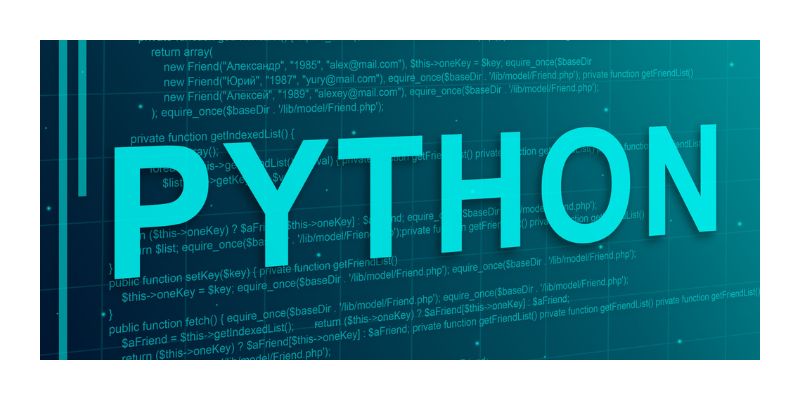
Python is a powerful and versatile programming language used for various applications. Whether you’re just starting or looking to enhance your skills, getting hands-on experience is crucial. Python Training in Bangalore provides hands-on experience with this versatile and powerful programming language, whether you’re just starting or looking to enhance your skills. Here are the top 11 practical experiences that will help you master Python.
The Top 10 Practical Experiences
- Build a Website with Django or Flask
Python is great for web development, thanks to frameworks like Django and Flask. Django is excellent for building robust, full-featured websites quickly, while Flask offers more flexibility for smaller projects. Start by creating a simple blog or a portfolio site to understand how web applications work, including handling user input and connecting to databases. This experience will teach you about routing, template rendering, and working with models. You’ll also learn to integrate third-party libraries and APIs, manage user authentication, and deploy your application to a web server.
- Analyze Data with Pandas and NumPy
Data analysis is a major strength of Python. Using Pandas and NumPy, you can manipulate and analyze large datasets easily. Try working on a project where you clean and analyze real-world data, such as public datasets from Kaggle. This will help you learn data cleaning, manipulation, and basic statistical analysis. You’ll get to practice tasks such as merging datasets, handling missing values, and performing aggregations. Additionally, creating visualizations with libraries like Matplotlib or Seaborn can help in presenting your findings effectively.
- Dive into Machine Learning
Machine learning is a hot field, and FITA Academy”s Python Training in Marathahalli makes it accessible. Start by building models for tasks like predicting house prices or classifying text messages. This will give you practical experience in selecting, training, and evaluating machine learning models. You’ll learn about different algorithms such as linear regression, decision trees, and k-means clustering. Moreover, understanding how to preprocess data, tune hyperparameters, and validate models will deepen your machine-learning knowledge.
- Automate Tasks with Python Scripts
Python is perfect for automating repetitive tasks. Write scripts to handle tasks like renaming files, scraping data from websites, or automating data entry. Use libraries like BeautifulSoup for web scraping or `os` and `shutil` for file operations. Automation projects can range from simple ones, like organizing files in a directory, to more complex ones, like automating report generation from a database. These projects will improve your problem-solving skills and understanding of how to interact with different system components.
- Create Desktop Applications with Tkinter
If you’re interested in building desktop applications, Tkinter is a great place to start. Build simple apps like a calculator or a to-do list manager to get a feel for GUI programming. This will help you understand event-driven programming and user interface design. Working on desktop applications allows you to explore various widgets, handle user inputs, and manage application states. You’ll also learn about distributing your application as standalone executables for different operating systems.
- Develop Games with Pygame
Pygame is a fun way to learn Python by building 2D games. Start with simple games like Snake or Tetris, and then move on to more complex projects. This will reinforce concepts like loops, conditionals, and object-oriented programming in an engaging way. Game development projects will introduce you to handling graphics, sound, and user interactions. You’ll also learn about game loops, collision detection, and managing game states, which are essential for creating interactive applications.
- Work with APIs
APIs allow different software applications to communicate. Use Python’s `requests` library to fetch data from APIs like Twitter, Google Maps, or weather services. Build a project that uses API data, such as a weather dashboard or a social media monitor. This experience will help you understand how to send HTTP requests, handle responses, and parse JSON data. Working with APIs is crucial for integrating third-party services and expanding the functionality of your applications.
- Manage Databases with SQLAlchemy
SQLAlchemy is a powerful tool for interacting with databases using Python. Design a database schema, perform CRUD operations, and optimize queries. Practice by building an inventory management system or a simple blog platform with a database backend. This will teach you about object-relational mapping (ORM) and how to work with relational databases. You’ll also learn about database migrations, indexing, and ensuring data integrity, which are essential skills for backend development.
- Test and Debug Your Code
Testing and debugging are crucial skills for any developer. Use Python’s `unittest` framework or `pytest` to write tests for your code. Practice debugging by intentionally introducing bugs and learning to fix them using tools like `pdb`. Writing tests helps ensure that your code works as expected and makes maintenance easier. You’ll learn about different types of testing, such as unit tests, integration tests, and end-to-end tests. Debugging experience will improve your ability to identify and fix issues quickly, which is essential for writing reliable software.
- Understand Concurrency and Parallelism
Improve your application’s performance by learning about concurrency and parallelism. Use libraries like `threading`, `multiprocessing`, and `asyncio`. Create projects that require parallel processing, such as a multi-threaded web scraper or a concurrent data processing pipeline. Understanding concurrency and parallelism will help you write more efficient code that can handle multiple tasks simultaneously. You’ll learn about thread safety, managing resources, and optimizing performance, which are important for developing high-performance applications.
These practical experiences will not only make you proficient in Python but also prepare you for real-world applications. Start with small projects that interest you and gradually take on more complex challenges. When looking for a place to enhance your Python skills, consider a Training Institute in Bangalore that offers hands-on experience and practical projects. With dedication and practice, you’ll be able to leverage Python’s versatility to excel in various domains. Happy coding!
Also Check: Python Interview Questions and Answers